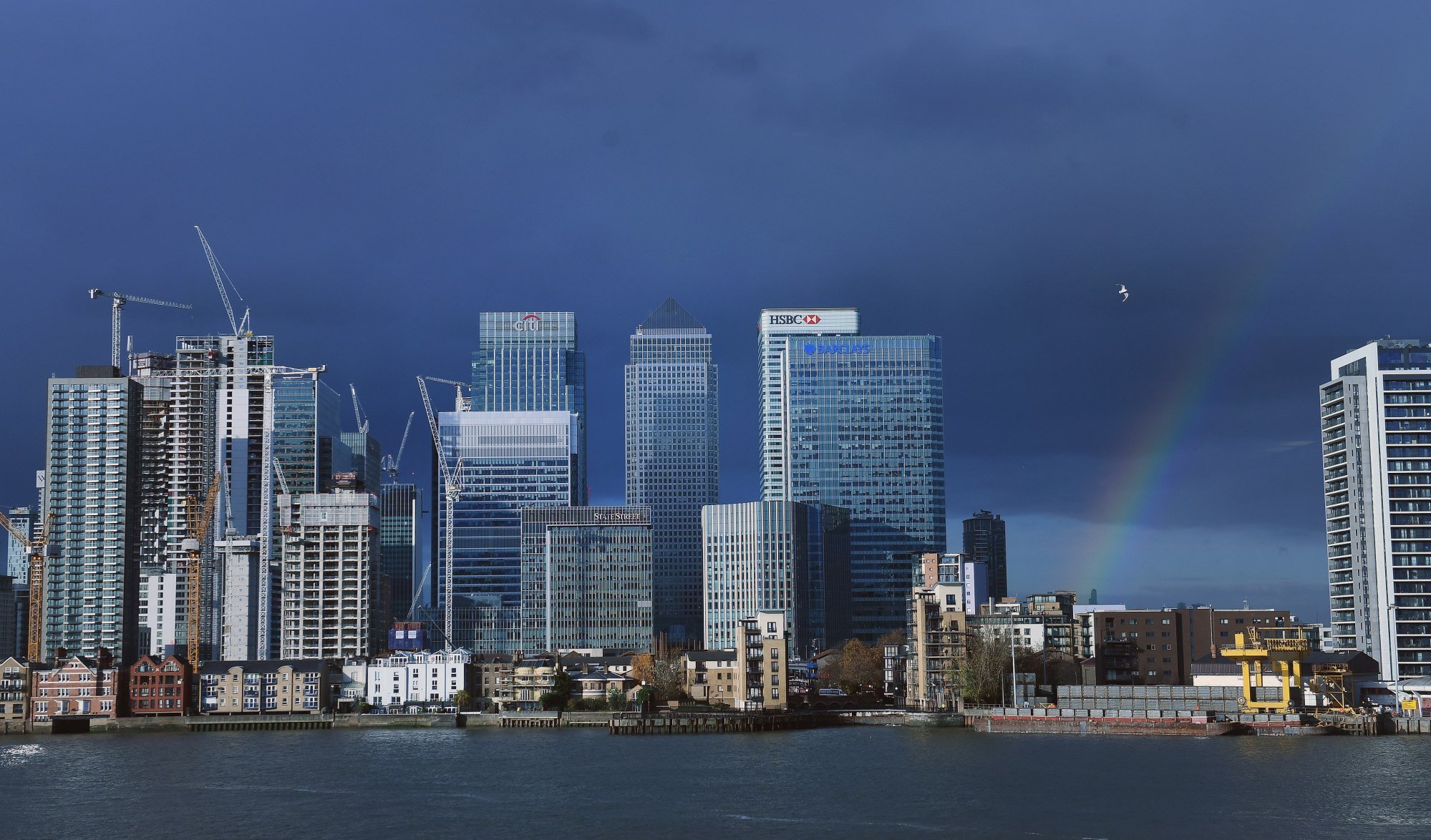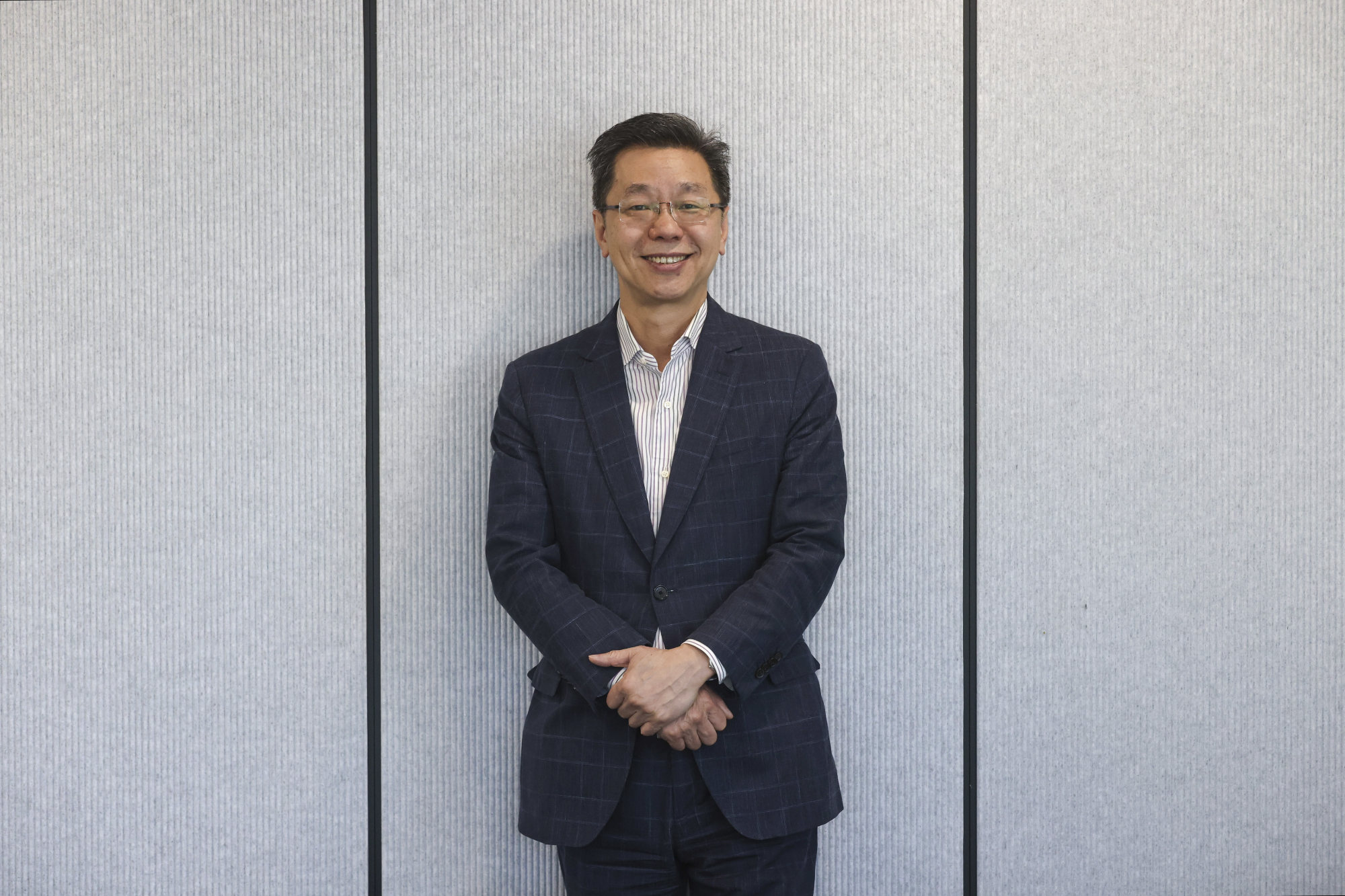
Hong Kong developer urges more time for negotiation over terms of Hung Shui Kiu new town plan
- Source says firm to consider withdrawing its land exchange applications for border project unless negotiation time for premium extended and commercial sites reduced
- Government requires applicants to decide by March 31 next year, a timeline the developer, who spoke on anonymity, calls ‘impractical’
A major Hong Kong developer has warned it might withdraw its land exchange applications for a project close to the city’s border with mainland China, saying the government should extend the negotiation time on the premium and ease the commercial site requirement.
But the Development Bureau on Thursday told the Post that it did not intend to extend the deadline and stressed the Hung Shui Kiu-Ha Tsuen new development area could include building a sizeable modern business centre in the northern New Territories.
The property developer, which spoke on condition of anonymity, put in a bid for the “in situ land exchange” programme at the area. The project will turn 441 hectares (1,090 acres) into a services centre and logistics hub.
The programme allows landowners at designated sites to pay premiums to the government and develop lots for specific land uses indicated in the statutory zoning plan approved by the Town Planning Board, the chief executive and his advisers.
Applicants were required to accept the terms and land premium of the sites falling under the area’s second phase of development by March 31 next year, a timeline the developer deemed “too short” and “impractical”.
The developer urged the government to extend the period to at least March 2026 and consider handling applications in stages.
“We will reflect our opinion to authorities … If the government does not change its mind, we are inclined to withdraw our applications,” the source said.
Under the second development phase, the government has allocated 16.9 hectares of land around Hung Shui Kiu city centre, with 1.3 million square metres of gross floor area expected to be built by developers.
But the company said the required commercial land use was too vast as it took up 1.1 million square metres or 85 per cent of the gross floor area, including 900,000 square metres located in the city centre. That is roughly the same as the 1.09 million square metres gross floor area of the Kowloon Station development.
“After the Covid-19 pandemic, workplace culture has changed. Many are concerned about work-life balance and opt to work from home or adopt the hybrid model. Traditional office usage is dropping,” the source said.
“It prompts people to ask whether the market can take such a massive amount of commercial land use.”
Property consultancy JLL said in February the overall vacancy rate for grade A offices reached 12.9 per cent as of January, with the figure in Central rising to 10.4 per cent from 9.9 per cent a month earlier.
The insider added that central business districts were transforming into “central social districts”, which featured housing, offices and recreational elements such as museums and public space.
The developer cited the example of London’s Canary Wharf, which set aside about half of its new area for residential and livelihood facilities, and Melbourne’s planning policy of adding housing in the central business district.

It suggested that the administration could rezone about 40 per cent of the gross commercial floor area at the city centre for residential or mixed-use purposes to provide more flexibility.
It added that the area should ensure vibrancy to retain talent in the city.
If the deal fails, the government will normally resort to using its financial resources to reclaim the site for future land sale or development.
The developer also brushed aside concerns about delays to the development if the government adopted its suggestions, saying public transport, including the railway service at Hung Shui Kiu and the cross-border line connecting it to Qianhai in Shenzhen, would only be ready in the 2030s.
It added that the government could consider rezoning a few commercial plots first, as the required town planning procedures would take only a few months to complete.
The latest land exchange programme closed its application on April 30 for sites falling under the second development phase, including some other plots at Ha Tsuen reserved for logistics and storage uses. Nine applications were received.
Upon full development, the entire area will provide about 66,700 flats to accommodate 183,900 residents and create about 150,000 jobs.
Sun Hung Kai Properties and Henderson Land Development are some of the major landowners in the district, according to sources.
The area falls under the Northern Metropolis megadevelopment, which aims to transform 30,000 hectares of land into an economic and residential hub near the city’s border with the mainland.
The Development Bureau replied to the Post that the northern New Territories lacked a sizeable modern business centre and Hung Shui Kiu could “fill the gap” and promote the area’s economic development.
“We should look to the future and not just current economic and investment conditions when we develop the Northern Metropolis,” a spokeswoman said.
“We believe we have sufficient time for negotiation. We have no intention to postpone the deadline as there are government project schedules to consider.”
The Bureau said that multiple factors would affect whether both sides could reach an agreement on the land premium, and the government could not guarantee a successful outcome.
Surveyor Lau Chun-kong, managing director of Colliers Hong Kong, said Hung Shui Kiu was intended to provide job opportunities for residents living in the New Territories when the plan was rolled out seven years ago.

“From Hong Kong’s long-term development, we need to consider whether a commercial centre is needed in the New Territories,” Lau said.
He also urged the government to review the discussion arrangement on land premiums, pointing to the less-than-ideal performance of the previous programme at Kwu Tung North-Fanling North new development area.
The programme was rolled out in February 2022 and received nine applications. Developers were supposed to accept the terms by last June, but the deadline was extended to December. So far, at least seven applicants have called off the deal.
The surveyor said the land premium required by the government had yet to meet the expectations of the developers.
“The major problem lies in the insufficient time for price bargaining,” he said. “Also, developers are concerned about whether the infrastructure and facilities can be implemented on time to support their projects.”

